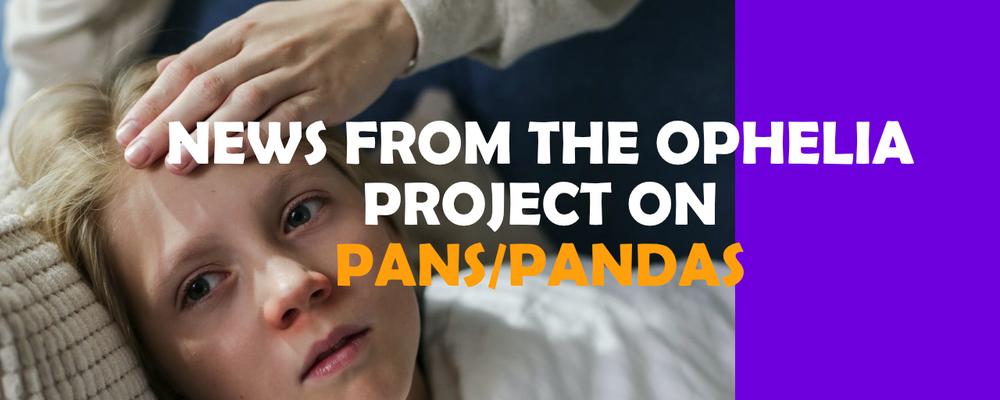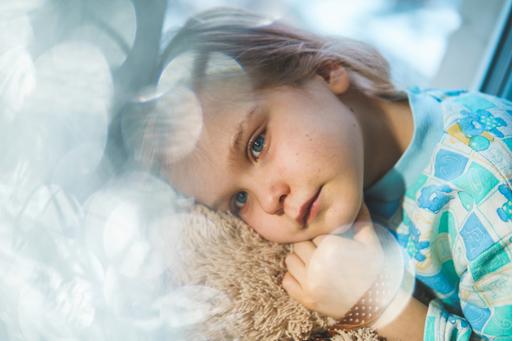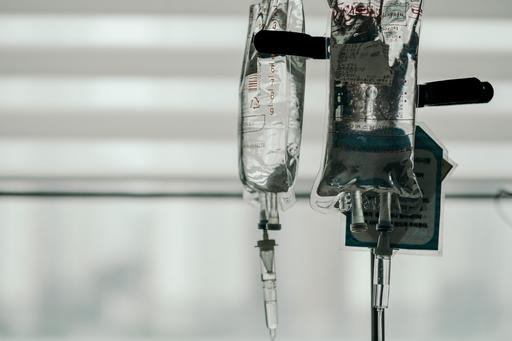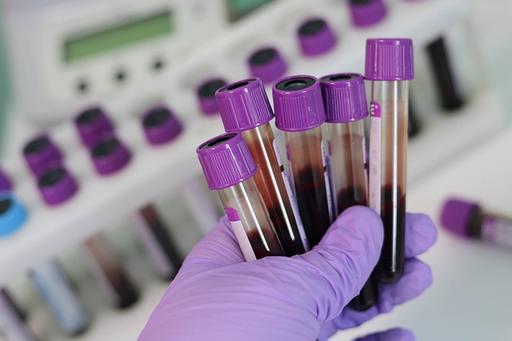
News from the OPHELIA project on PANS/PANDAS
Mats Johnson gives us an update on the important PANS/PANDAS research at the GNC.
[Published 11 September 2023 by Mats Johnson]
The research project OPHELIA (ON PANS: HOLISTIC EPIDEMIOLOGY, LONGITUDINAL IMMUNOTHERAPIES, ADDITIONAL TREATMENTS; see the Gillberg Neuropsychiatry Centre website "ESSENCE interventions") started in 2020 with the aim of increasing knowledge about the symptoms, causes and treatment of PANS/PANDAS. PANDAS (Paediatric Autoimmune Neuropsychiatric Disorder Associated with Streptococcal infections) was described in the 1990s by researchers in the United States, when a link was seen between streptococcal infections and acute illness with compulsions, tics and other neuropsychiatric symptoms. Over time, it became clear that other infections (bacteria and viruses) could also be associated with acute severe neuropsychiatric symptoms (compulsions, eating disorders, separation anxiety, irritability/outbursts, attention difficulties, hyperactivity, tics and other involuntary movements, developmental regression, impaired motor skills, sleep difficulties, fatigue, urinary frequency/incontinence, hallucinations). In 2012 a US research team therefore proposed the diagnosis PANS (Paediatric Acute-onset Neuropsychiatric Syndrome), which only describes symptoms, not a specific cause. The symptoms are thought to be due to a post-infectious neuroinflammatory/immunological reaction. PANS/PANDAS are exclusionary diagnoses, i.e. all other known medical, neurological and child psychiatric conditions should be investigated/excluded. The COVID-19 pandemic has provided new insights that this virus can also be accompanied by varying neuropsychiatric symptoms and severe fatigue.

Treatments tested for PANS/PANDAS are antibiotics, anti-inflammatory, immunomodulatory, psychopharmacological and psychological treatments. The scientific evidence is still insufficient and there is a great need for research on diagnosis and treatment.

Since the start of the OPHELIA project in 2020, we have assessed approximately 80 children and adolescents referred to us for suspected PANS/PANDAS from child psychiatric and paediatric clinics in Sweden after a child psychiatric and paediatric/neurological assessment of other possible diseases, and our team has offered consultation on diagnostics and treatment. We have published studies of Human Leukocyte Antigen (HLA) types and neuronal damage markers in patients with PANS/PANDAS (Fernell et al. 2021, Johnson et al. 2021a), and a review of research studies on treatments (Johnson et al. 2021b).

The project includes an open-label treatment trial with intravenous immunoglobulin (IVIG), in which 13 patients have now been enrolled. We have published results from the first 10 patients in the study (Hajjari et al. 2022), who received IVIG treatment once a month for 3 months, and significant improvement in symptoms and daily function was seen in a large majority. The publication of results from motor and neuropsychological tests, immunological - inflammatory biomarkers in blood samples, and long-term results are planned (follow-up for 1.5 years with up to 3 additional IVIG treatments in case of deterioration). The IVIG study is conducted in collaboration with the "Akutläkarna" Clinic in Gothenburg, Queen Silvia Children’s hospital in Gothenburg, H.R.H Crown Princess Victoria's Children's hospital in Linköping, and the Pediatric Clinic Skåne University Hospital. We now consider expanding the IVIG study to include 4 patients with regressive autism, i.e. a marked regression in development and deterioration in well-being, and where an association with infections is suspected.

We are also planning, in collaboration with Image and Function, Skåne University Hospital in Lund, researchers at Harvard University, USA and University of Basel, Switzerland, a case-control study with magnetic resonance imaging (MRI) of the brain with a newly developed MRI protocol that is extra sensitive to signs of inflammation. In this study, we will compare MRI findings in 40 children, 20 children with PANS and 20 healthy controls to see if there are signs of inflammation in PANS, and also compare MRI findings before and after IVIG treatment in a small group (5 children) with PANS.
References
Johnson M, Fernell E, Preda I, Wallin L, Fasth A, Gillberg Ca, Gillberg C (2019). Paediatric acute-onset neuropsychiatric syndrome in children and adolescents: an observational cohort study. Lancet Child Adolesc Health 3(3):175-180.
Fernell E, Sundin M, Fasth A, Dinkler L, Galazka M, Gillberg C, Johnson M (2021). Paediatric Acute onset Neuropsychiatric Syndrome: Exploratory study finds no evidence of HLA class II association but high rate of autoimmunity in first-degree relatives. Acta Paediatrica Feb 10.
Johnson M, Fernell E, Gillberg C, Fasth A, Dinkler L, Blennow K, Zetterberg H (2021a). No neurochemical evidence of neuronal injury or glial activation in children with Paediatric Acute-onset Neuropsychiatric Syndrome. An explorative pilot study. World J Biol Psychiatry. Apr 16:1-5.
Johnson M, Ehlers S, Fernell E, Hajjari P, Wartenberg C, Wallerstedt SM (2021b). Anti-inflammatory, antibacterial and immunomodulatory treatment in children with symptoms corresponding to the research condition PANS (Pediatric Acute-onset Neuropsychiatric Syndrome) – a systematic review. PLOS ONE, Jul 1;16(7):e0253844.
Hajjari P, Huldt Oldmark M, Fernell E, Jakobsson K, Vinsa I, Thorsson M, Monemi M, Stenlund L, Fasth A, Furuhjelm C, Åsberg Johnels J, Gillberg C, Johnson M (2022). Paediatric Acute-onset Neuropsychiatric Syndrome (PANS) and intravenous immunoglobulin (IVIG): Comprehensive open-label trial in ten children. BMC Psychiatry 22:535, published online 6 aug.
